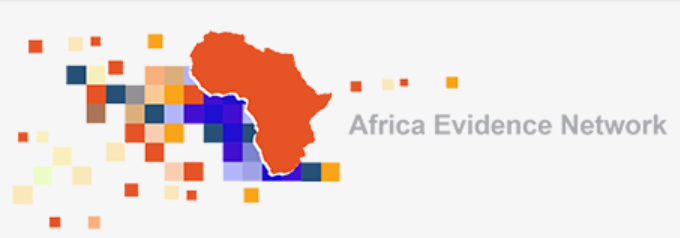
Mr Clement Dlamini at the 8th International African Evaluation Association in Kampala, Uganda
Introduction
The Monitoring and Evaluation Association of Swaziland (MEAS) is a not-for profit association, registered in Swaziland on 13th January 2016. The association was established in the frame of the EU-funded project ‘Fostering Communication and Cooperation among Non-State Actors (NSAs) for the benefit of Swazi civil society’ implemented by the Italian organisations punto.sud and COSPE in Swaziland in-between 2013 and 2017. MEAS seeks to improve cooperation, participation and collaboration of Civil Society Actors in development processes in Swaziland and harness common priorities in order to strengthen and better coordinate advocacy efforts by civil society organizations (CSOs). It also aims at improving communication systems, networking and information flow between CSOs and Networks and at building their capacities, through trainings that offers practical tools for more effective participation in development processes.
The 8th African Evaluation Association International Conference
Through the support of the European Union under the Aid Coordination Mechanism Section (ACMS) MEAS participated at the 8th African Evaluation Association (AfrEA) International Conference in Kampala during the week of 27-31 March 2017, under the critical theme in international development – Evaluation of the Sustainable Development Goals (SDGs): Opportunities and Challenges for Africa. Over 600 participants convened in Kampala at Speke Munyonyo Resort. Delegates were drawn from governments, donor organizations, national evaluation associations, academia, civil society and the private sector. It was a great opportunity for learning, sharing and networking for the newly established MEAS and also presented an opportunity to establish networks that will enhance Swaziland national evaluation capacities and promote the use of evaluative evidence. Objectives of the Conference
- To strengthen VOPEs (MEAS is a registered Volunteer Organization for Professional Evaluation [VOPE]) to work with national governments to advance the evaluation agenda.
- To provide space for sharing experiences to enhance national evaluation capacities.
- To showcase the use of evaluative evidence in Africa.
- To contribute to the development of emerging evaluators.
MEAS Representation
Representing MEAS was the president Mr Clement N Dlamini of the University of Swaziland under the Sociology and Social Department in the Faculty of Social Sciences, together with the vice president Ms Lungile Nkambule who works for the Coordinating Assembly of NGOs (CANGO) as an M&E Manager. MEAS deemed it important to participate in the conference so as to build capacity to design, manage and use evaluations to help achieve their national and international development agenda, particularly to align with the Africa 2063 Agenda, especially Aspiration 1, “A prosperous Africa based on inclusive growth and sustainable development.” As a new association the Swazi team was drawn to sessions that related to the development agenda of Swaziland, these included Leveraging on capacity building knowledge – Using M&E Data to improve performance; Evaluating resilience and poverty; and the issues of youth and evaluations. Due to the fact that MEAS is a new association in Swaziland, the MEAS representatives saw it critical to participate in many sessions related to strengthening Voluntary Organization for Professional Evaluations (VOPEs), of which this discussion will be focusing on.
Strengthening the voice of Voluntary Organisation for Professional Evaluations panel session chaired by Mr Clement Dlamini at the 8th AfrEA conference
Strengthening the Voice of VOPEs
The conference agreed on the principle of strengthening VOPEs in each of the nations that already have one and encouraged those countries that have not already established them to escalate their efforts in establishing them. Critical to the establishment of these evaluation associations/societies is that they serve as a catalyst to the creation of an M&E culture in their countries. Evaluation associations/societies in their design bring together professionals working in M&E which includes government, academia, civil society organizations, students, development partners and institutions that have an interest in the development agenda of their country.
Interesting enough, as a country Swaziland is in process of through the Ministry of Economic Planning and Development under their Poverty Unit to prioritize SDGs in preparation for implementation and reporting. Most of the VOPEs that were gathered at the AfrEA conference play a very important role in assisting their governments to monitor the implementation of these SDGs. In Swaziland, MEAS has participated in an exercise of prioritizing, reviewing and discussing SDGs. At AfrEA the conference delegates identified that as a milestone for a new association to be involved at that level of national discussion – Swaziland through the President of MEAS had an opportunity to chair a session that involved associations from Senegal, Zimbabwe, Uganda, Tanzania, delegates from UNICEF, and representatives of the voices of South Asia Evaluation Associations.
Conclusion
This was a worthy investment towards strengthening MEAS at same time contributing towards the mandate of MEAS of “creating an M&E discussion in Swaziland.” MEAS constitutes members from government, private sector, civil society organizations and academia, and this is a perfect mix to push for a results based development agenda. It can never be over emphasized that developmental decisions cannot be made in a vacuum, but they must be evidence based. The conference in Kampala emphasized how countries can minimize poor policy decisions by inculcating public participation and evidence generation through impact evaluation. This was discussed more specifically with regards to measuring the gains made in development, that it is imperative for countries to have deliberately positioned themselves to be able to measure impact during project design. Monitoring & Evaluation Associations/Societies due to their independent and autonomous status are better placed to play an advisory role in these issues, whilst at the same time contributing in capacity strengthening.